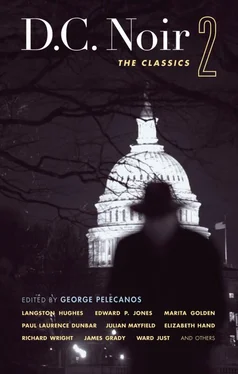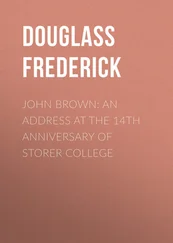“Wait,” I said, trying to remember the words. “I. Want. You. To—”
Too late: David was out. My hand scrabbled across the floor, searching for the book I’d left there, a used New Directions paperback of Rimbaud’s work. Even pages were in French; odd pages held their English translations.
I wanted David to read me La lettre du voyant, Rimbaud’s letter to his friend Paul Demeny; the letter of the seer. I knew it by heart in English and on the page but spoken French eluded me and always would. I opened the book, struggling to see through the scrim of cheap narcotic and nausea until at last I found it.
Je dis qu’il faut être voyant, se faire voyant.
Le Poète se fait voyant par un long, immense et raisonné
dérèglement de tous les sens.
Toutes les formes d’amour, de souffrance,
de folie; il cherche lui-même …
I say one must be a visionary, one must become a seer.
The poet becomes a seer through a long, boundless and
systematic derangement of all the senses.
All forms of love, of suffering, of madness;
he seeks them within himself …
As I read I began to laugh, then suddenly doubled over. My mouth tasted sick, a second sweet skin sheathing my tongue. I retched, and a bright-red clot exploded onto the floor in front of me; I dipped my finger into it then wrote across the warped parquet:
DEAR DAV
I looked up. There was no light save the wavering flame of a candle in a jar. Many candles, I saw now; many flames. I blinked and ran my hand across my forehead. It felt damp. When I brought my finger to my lips I tasted sugar and blood. On the floor David sprawled, snoring softly, his bandana clenched in one hand. Behind him the walls reflected candles, endless candles; though as I stared I saw they were not reflected light after all but a line of flames, upright, swaying like figures dancing. I rubbed my eyes, a wave cresting inside my head, then breaking even as I felt something splinter in my eye. I started to cry out but could not: I was frozen, freezing. Someone had left the door open.
“Who’s there?” I said thickly, and crawled across the room. My foot nudged the candle; the jar toppled and the flame went out.
But it wasn’t dark. In the corridor outside our apartment door a hundred-watt bulb dangled from a wire. Beneath it, on the top step, sat the boy I’d seen in the urinal beside David. His hair was the color of dirty straw, his face sullen. He had muddy green-blue eyes, bad teeth, fingernails bitten down to the skin; skeins of dried blood covered his fingertips like webbing. A filthy bandana was knotted tightly around his throat.
“Hey,” I said. I couldn’t stand very well so I slumped against the wall, slid until I was sitting almost beside him. I fumbled in my pocket and found one of David’s crumpled Gitanes, fumbled some more until I found a book of matches. I tried to light one but it was damp; tried a second time and failed again.
Beside me the blond boy swore. He grabbed the matches from me and lit one, turned to hold it cupped before my face. I brought the cigarette close and breathed in, watched the fingertip flare of crimson then blue as the match went out.
But the cigarette was lit. I took a drag, passed it to the boy. He smoked in silence, after a minute handed it back to me. The acrid smoke couldn’t mask his oily smell, sweat and shit and urine; but also a faint odor of green hay and sunlight. When he turned his face to me I saw that he was older than I had first thought, his skin dark-seamed by sun and exposure.
“Here,” he said. His voice was harsh and difficult to understand. He held his hand out. I opened mine expectantly, but as he spread his fingers only a stream of sand fell onto my palm, gritty and stinking of piss. I drew back, cursing. As I did he leaned forward and spat in my face.
“Poseur.”
“You fuck!” I yelled. I tried to get up but he was already on his feet. His hand was tearing at his neck; an instant later something lashed across my face, slicing upwards from cheek to brow. I shouted in pain and fell back, clutching my cheek. There was a red veil between me and the world; I blinked and for an instant saw through it. I glimpsed the young man running down the steps, his hoarse laughter echoing through the stairwell; heard the clang of the fire door swinging open and crashing shut; then silence.
“Shit,” I groaned, and sank back to the floor I tried to staunch the blood with my hand. My other hand rested on the floor. Something warm brushed against my fingers. I grabbed it and held it before me — a filthy bandana, twisted tight as a noose, one whip-end black and wet with blood.
I saw him one more time. It was high summer by then, the school year over. Marcy and Bunny were gone till the fall, Marcy to Europe with her parents, Bunny to a private hospital in Kentucky. David would be leaving soon, to return to his family in Philadelphia. I had found another job in the city, a real job, a GS-1 position with the Smithsonian; the lowest-level job one could have in the government, but it was a paycheck. I worked three twelve-hour shifts in a row, three days a week, and wore a mustard-yellow polyester uniform with a photo ID that opened doors to all the museums on the Mall. Nights I sweated away with David at the bars or the Atlantis; days I spent at the newly opened East Wing of the National Gallery of Art, its vast open white-marble space an air-conditioned vivarium where I wandered stoned, struck senseless by huge moving shapes like sharks spun of metal and canvas: Calder’s great mobile, Miró’s tapestry, a line of somber Rothkos, darkly shimmering waterfalls in an upstairs gallery. Breakfast was a Black Beauty and a Snickers bar, dinner whatever I could find to drink.
We were at the Lost and Found, late night early August. David as usual had gone off on his own. I was, for once, relatively sober: I was in the middle of my three-day work week; normally I wouldn’t have gone out but David was leaving the next morning. I was on the club’s upper level, an area like the deck of an ocean liner where you could lean on the rails and look down onto the dance floor below. The club was crowded, the music deafening. I was watching the men dance with each other, hundreds of them, maybe thousands, strobe-lit beneath mirror balls and shifting layers of blue and gray smoke that would ignite suddenly with white blades of laser-light, strafing the writhing forms below so they let out a sudden single-voiced shriek, punching the air with their fists and blasting at whistles. I rested my arms on the rounded metal rail and smoked, thinking how beautiful it all was, how strange, how alive. It was like watching the sea.
And as I gazed, slowly it changed; slowly something changed. One song bled into another, arms waved like tendrils; a shadow moved through the air above them. I looked up, startled, glanced aside and saw the young blond man standing there a few feet from me. His fingers grasped the railing; he stared at the dance floor with an expression at once hungry and disdainful and disbelieving. After a moment he slowly lifted his head, turned and stared at me.
I said nothing. I touched my hand to my throat, where his bandana was knotted there, loosely. It was stiff as rope beneath my fingers: I hadn’t washed it. I stared back at him, his green-blue eyes hard and somehow dull; not stupid, but with the obdurate matte gleam of unpolished agate. I wanted to say something but I was afraid of him; and before I could speak he turned his head to stare back down at the floor below us.
“Cela s’est passé,” he said, and shook his head.
I looked to where he was gazing. I saw that the dance floor was endless, eternal: the cinder-block warehouse walls had disappeared. Instead the moving waves of bodies extended for miles and miles until they melted into the horizon. They were no longer bodies but flames, countless flickering lights like the candles I had seen in my apartment, flames like men dancing; and then they were not even flames but bodies consumed by flame — flesh and cloth burned away until only the bones remained, and then not even bone but only the memory of motion, a shimmer of wind on the water, then the water gone and only a vast and empty room, littered with refuse: glass vials, broken plastic whistles, plastic cups, dog collars, ash.
Читать дальше











